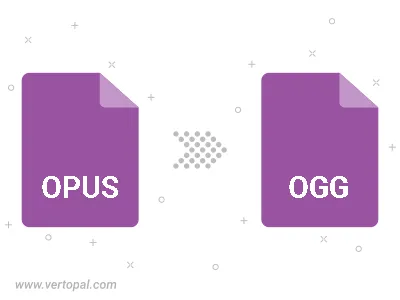Convert OPUS to OGG
Convert OPUS audios to OGG format, edit and optimize audios online and free.

Opus, associated with Opus Audio, is an open, royalty-free audio codec designed for high-quality voice and music streaming. Introduced by the Internet Engineering Task Force (IETF) in 2012, it adapts seamlessly to various applications like VoIP, videoconferencing, in-game chat, and live music performances. Known for its versatility, low latency, and high compression efficiency, Opus is widely adopted in modern communication platforms and web applications, making it a cornerstone in contemporary audio technology.
The OGG file extension, specifically associated with Ogg Vorbis Audio, represents a free, open-source container format developed by the Xiph.Org Foundation. Its primary use is to store compressed audio files, ensuring efficient streaming and manipulation. Introduced in the late 1990s, Ogg Vorbis was designed to offer an alternative to proprietary audio formats like MP3, delivering high-quality sound without patent restrictions. Its widespread adoption across various platforms and devices highlights its significance in the digital audio landscape.
Choose the OPUS audio you want to convert by browsing your device.
Select tools to convert your OPUS audio into a OGG audio, then click Convert.
Once the OGG process is finished, the file will be ready for download.

Trim & cut OPUS and convert it to OGG.
Convert OPUS to OGG and set the output channels to Mono (1.0) or Stereo (2.0).
Select the encoder for converting your OPUS to OGG. Choose between libvorbis, libopus, or FLAC audio encoders.
Prepare Vertopal CLI to process OPUS audio and deliver OGG audio.